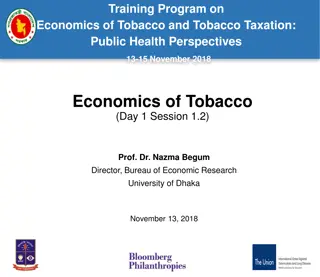Tailoring Tobacco Cessation Medications for Optimal Results
Selecting the best tobacco cessation medication involves considering individual medical, psychological, and social needs. Various FDA-approved options include Nicotine Replacement Therapy (NRTs), Varenicline (Chantix), and Bupropion (Wellbutrin, Zyban). Screening patients is crucial to ensure safe usage based on factors like allergies, medical conditions, and age. Tailoring treatment leads to better outcomes with fewer side effects.
Download Presentation

Please find below an Image/Link to download the presentation.
The content on the website is provided AS IS for your information and personal use only. It may not be sold, licensed, or shared on other websites without obtaining consent from the author. Download presentation by click this link. If you encounter any issues during the download, it is possible that the publisher has removed the file from their server.
E N D
Presentation Transcript
Selecting the Optimal Tobacco Cessation Medication Rosario Wippold, RN, MPH
Why to Tailor Smoking Cessation Medications Each patient has unique medical, psychological, and social needs Smoking cessation medications work in different ways To achieve the best therapeutic effect with minimal side effects
Smoking Cessation Medications (FDA Approved) Nicotine replacement therapy (NRTs): Patch, Gum, Lozenges, mini-Lozenges, Inhaler, Intranasal Spray Varenicline (Chantix) Bupropion (Wellbutrin, Zyban)
Screening Patients to the Use of NRTs When considering using oral/nasal NRTs, evaluate pt. for: 1. Use of dentures/ teeth extractions 2. Impending maxillo-facial surgery 3. Mouth sores
Screening Patients to the Use of NRTs For the use of the Nicotine Transdermal Patch, evaluate pt. for: 1. Allergy to latex products 2. Untreated coronary artery disease (CAD)/unstable angina 3. Uncontrolled palpitations 4. Sleep disorder
Screening Patients to the Use of Varenicline (Chantix) The following conditions will call for a cautious use of this medication: Age> 60 Decreased creatinine clearance GI problems Sleep disorder Fatigue
Screening Patients to the Use of Varenicline (Chantix) Unstable depression Current suicidal ideation Other unstable psychiatric problems Allergy to this medication Pregnancy
Screening Patients to the Use of Bupropion The following conditions will call for a cautious use of this medication: Increased hepatic enzyme values Brain disease/head trauma (might increase the risk of seizures) Seizures Sleep disorder Anxiety
Screening Patients to the Use of Bupropion Severe migraine headache Hypertension Dry mouth Unstable psychiatric problems Eating disorders
Screening Patients to the Use of Bupropion Heavy alcohol use/dependence Pregnancy Past adverse reaction to Bupropion Use of feeding tube
Screening Patients to the Use of Bupropion The use of Bupropion concurrently with the following medications is not recommended or only to be used cautiously: TCA (amitriptyline, doxepin, nortriptyline) Levodopa Carbimazole Reglan Theophylline
Screening Patients to the Use of Bupropion Concurrent use with the following medications is contraindicated: MAOIS (Isocarboxazid, Hydracarbazine, Selegine) Tamoxifen Linezolid Procarbazine
Putting It All Together When selecting a tobacco cessation medication, it is important to keep in mind: Medical history and Mental health history Current medications Allergies Smoking history Alcohol/ drug use history
References Hunter New England Area Health Service. Drug Interactions with Smoking. Hunter New England Area Health Service; July 2008. Medicines Information Centre, Pharmacy Department, Smoking and Drug Interactions, Mersey Care NHS Trust. June 2007. http://www.merseycare.nhs.uk/Library/What_we_do/Clinical_Services/Public_Health/Smokin g_Interactions.pdf Regents University of California, Rx for Change, Drug Interactions with Tobacco Smoke. 2003 Sandson, Neil B., M.D., Armstrong, Scott C., M.D., and Cozza, Kelly L., M.D. An Overview of Psychotropic Drug-Drug Interactions. Psychosomatics 2005; 46:464-494. Madhusoodanan, S., Velama, U., Parmar, J., Goia, D., and Brenner, R. A current review of cytochrome P450 interactions of psychotropic drugs. Ann Clin Psychiatry 2014 May; 26(2):120-38. Sussex Partnership. NHS Foundation Trust. http://www.sussexpartnership.nhs.uk Guidance for NHS Grampian Staff on Smoking Cessation and Psychotropic Drug Interactions. http://www.nhsgrampian.com/grampianfoi/files/MHSmPsyc_590_0613.pdf Desai, HD, Seabolt J, Jann MW. Smoking in patients receiving psychotropic medications: a pharmacokinetic perspective. CNS Drugs. 2001; 15(6):469-94


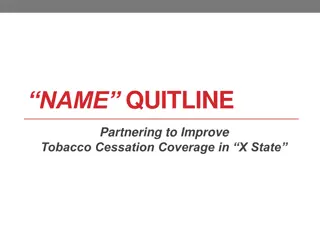


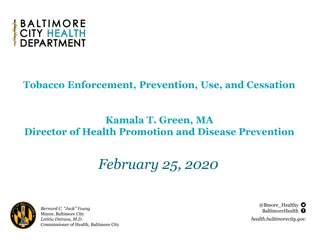

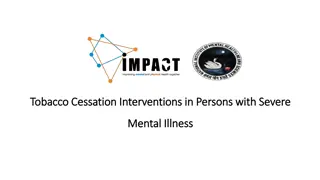
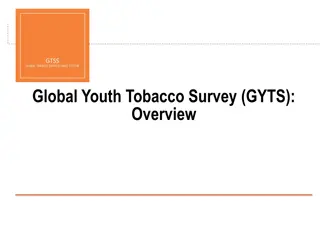
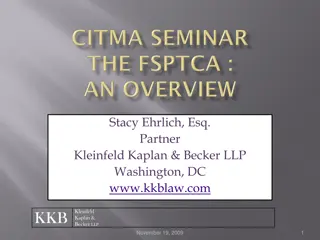






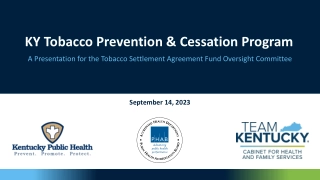


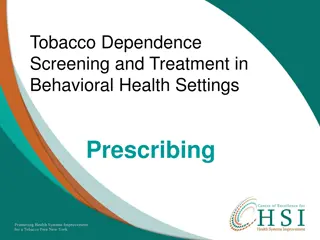
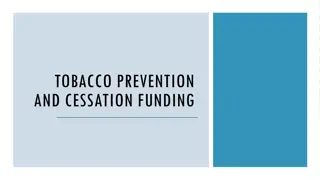
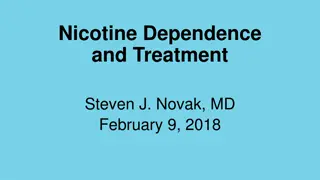




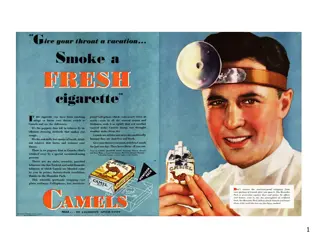





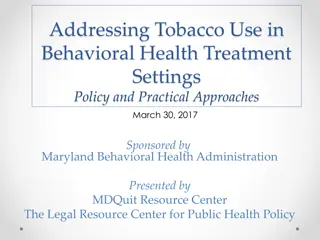
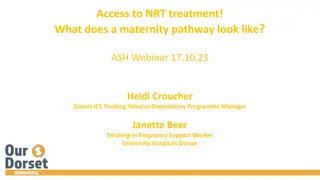



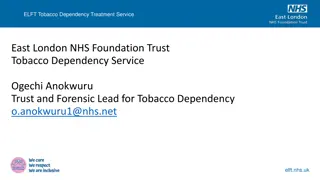
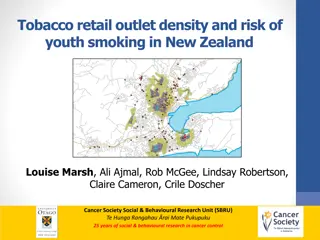


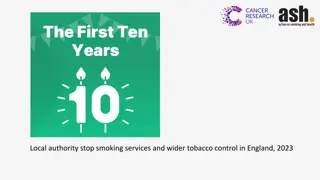


![Protecting Youth Through Tobacco Retail Licensing in [Your County]](/thumb/175307/protecting-youth-through-tobacco-retail-licensing-in-your-county.jpg)


